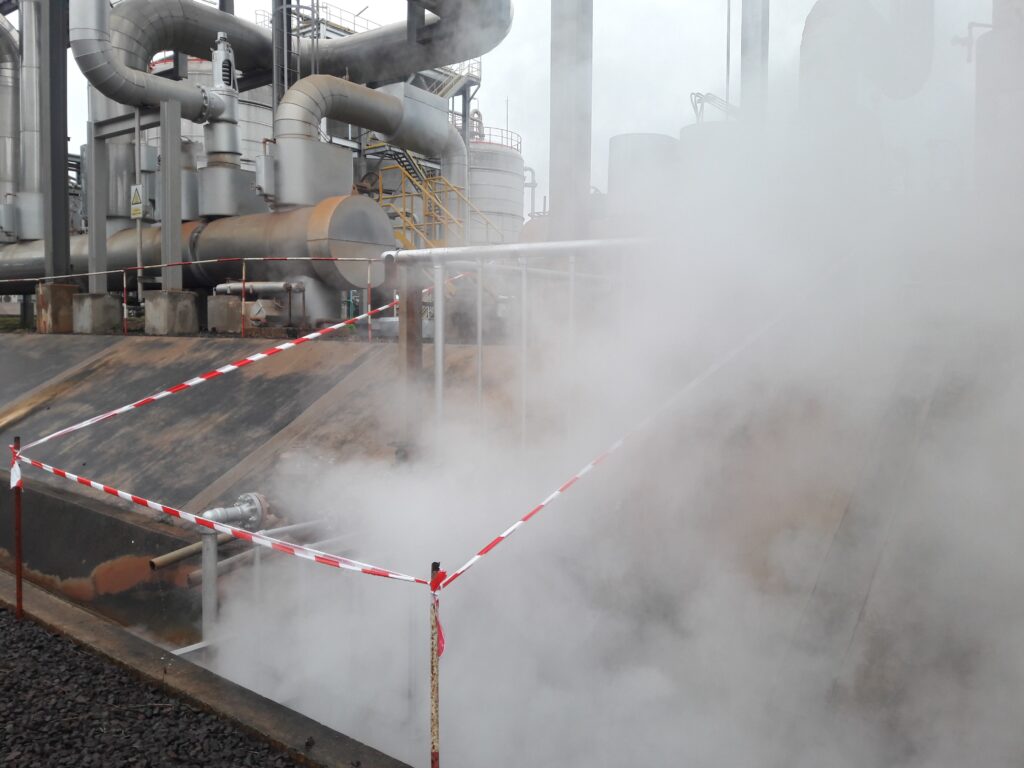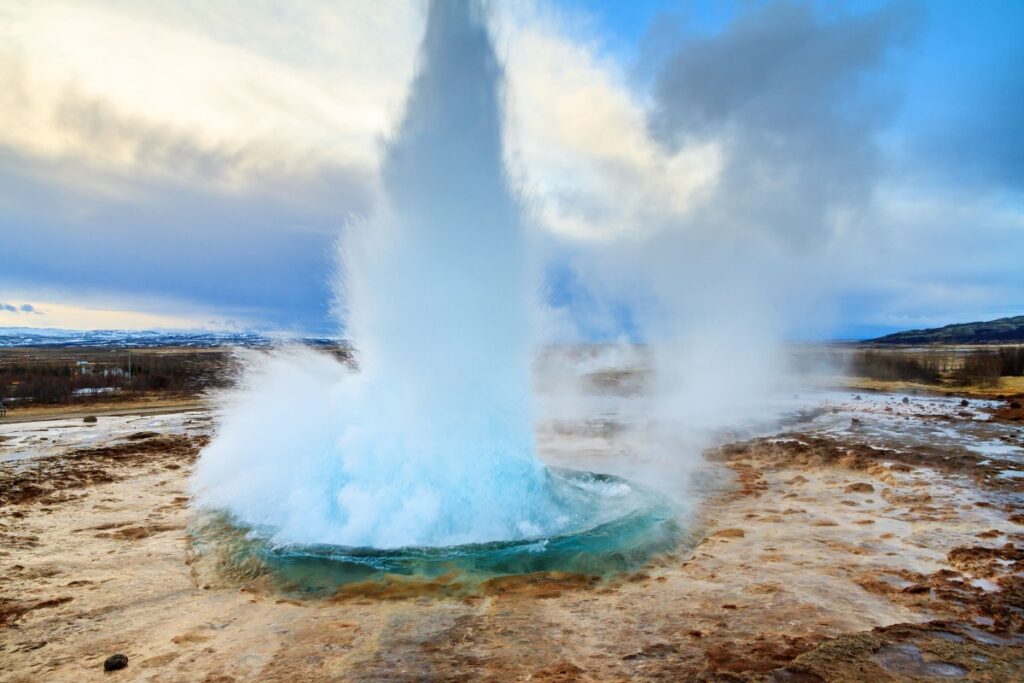I’ve heard some people say that the term steam explosion is a malaprop because explosions involve combustion. However, if you look up the definition of explosion, you get this: “a large-scale, rapid, or spectacular expansion or bursting out or forth.” (Thanks, Meriam-Webster!!) If you’ve ever witnessed a steam explosion, you’ll agree that it is a MOST appropriate term!
Steam explosions occur when water or other liquid undergoes a sudden phase change from liquid to vapor and rapidly releases a tremendous amount of energy. Several factors can contribute to the occurrence of steam explosions, including superheating, process startup or shutdown malfunctions, and volcanic eruptions.
- Superheating: When water is heated above its boiling point without boiling, it becomes superheated. If this superheated water is disturbed or rapidly depressurized, it can undergo a phase change into steam, releasing an enormous amount of energy. This phenomenon is particularly common in industrial settings where high-pressure boilers are utilized.
- Process startup/shutdown: Improper sequencing of operations can introduce water into vessels that are too hot or not fully empty of hot material. The water will flash to steam and the resulting pressure wave can cause an explosion.
- Volcanic Steam Explosions: Volcanoes provide a natural setting for steam explosions. When water or other volatile substances come into contact with hot magma or lava, they vaporize rapidly, creating an explosive eruption. Think Old Faithful, the geyser… the water in the earth gets heated and pressurized. When it reaches the surface and the pressure lowers, the water turns to steam and jets into the air, taking more water with it.
Steam explosions can have devastating consequences, both in terms of property damage and human safety. The release of energy during a steam explosion can cause structural failures, ruptures, and the dispersal of debris over a wide area. In industrial facilities, these explosions can lead to fires, equipment damage, and potential harm to workers. In the case of volcanic steam explosions, the associated ash clouds and pyroclastic flows can pose significant risks to nearby populations and infrastructure.
To mitigate the risks associated with steam explosions, certain precautions and safety measures are necessary. These include:
- Proper maintenance and inspection of industrial equipment, particularly steam boilers and piping systems, to ensure they are in good working condition.
- Proper cleaning procedures and training to keep solutions from becoming super saturated and/or superheated and to keep water from entering tanks where it could flash to steam quickly.
- Implementing relief valves and pressure release mechanisms to prevent the buildup of excessive pressure.
- Educating and training workers on the risks associated with steam explosions and promoting safe operating procedures.
Steam explosions are awe-inspiring phenomena that demand our attention and respect. Understanding the causes and mechanisms behind these events allows us to develop safety protocols and preventive measures to minimize their potential impact. By respecting the power of steam explosions and implementing appropriate safety measures, we can strive to prevent disasters and protect lives and infrastructure.
As President of The Warren Group, Jennifer Morningstar, B.S.Ch.E, P.E., CFEI, has over 20 years of engineering experience. A licensed professional engineer in several states and a NAFI Certified Fire and Explosion Investigator, she holds a Bachelor of Science Degree in Chemical Engineering from Virginia Polytechnic Institute and State University, as well as a Master of Business Administration from the University of South Carolina. Throughout her engineering career, Jennifer has conducted forensic investigations involving chemical release/exposure, OSHA process safety management, industrial accident investigation, equipment failures, fires & explosions, and scope of damage/cost to repair. Jennifer is a member of the National Association of Fire Investigators (NAFI), the South Carolina chapter of the International Association of Arson Investigators (SCIAAI), and the American Institute of Chemical Engineers (AIChE).





